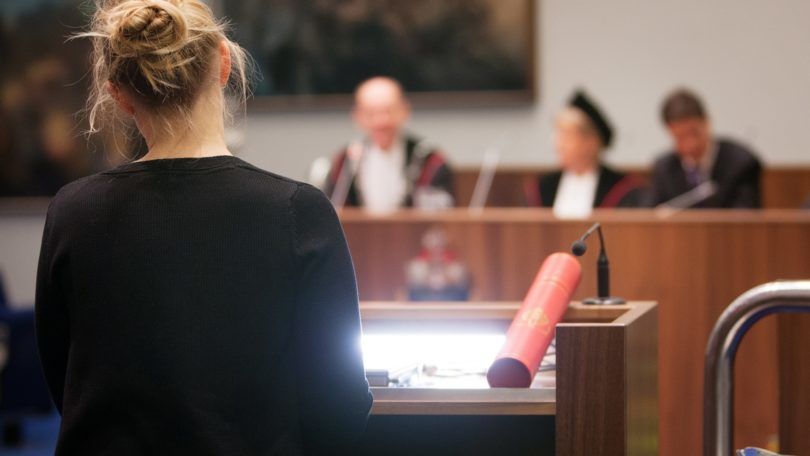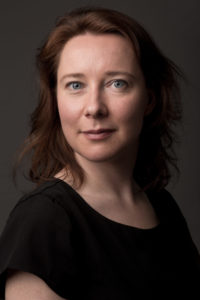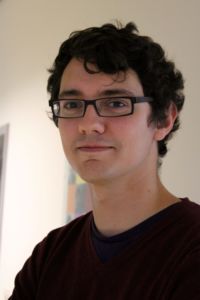Radboud University seeks advice from young scientists
-
 Photo: Dick van Aalst
Photo: Dick van Aalst
A network organisation of young enthusiastic scientists in which new ideas for the university are generated. That’s the plan of the Radboud Young Academy that is to be launched soon. ‘But this isn’t an elite club’, assure co-founders Marieke van den Brink and Arne Smeets.
On a national level there is The Young Academy (DJA), a group of fifty young scientists who give advice on science and scientific policy. Most Dutch universities also have a platform on which young, talented academics can meet to brainstorm about the future of the university.
Innovative research
Nijmegen is a bit behind in this respect, but all that’s about to change. Partly at the insistence of maths lecturer Arne Smeets and Professor of Gender & Diversity Marieke van den Brink, both members of The Young Academy, Radboud University is about to launch the Radboud Young Academy. There is room for sixteen members in the iteration, according to a call for applications on Radboudnet. Over time that number is expected to double.
The new club must offer young scientists the opportunity to expand their network. Van den Brink: ‘By coming into contact with scientists from other fields, they will come up with ideas for innovative research. Just like we see at The Young Academy.’
There are a lot of young academics, but their ideas on science aren’t being channelled at the moment, explains maths lecturer Arne Smeets. ‘The Radboud Young Academy will act as a catalyser for new and exciting ideas.’
Can’t enthusiastic scientists currently submit their ideas to the Executive Board?
Arne Smeets: ‘Our rector is very accessible, but there’s no structured approach if everyone starts sharing their personal concerns with him. The RJA will give us the opportunity to do this in a more systematic way.’
Marieke van den Brink: ‘Our aim is to be a mouthpiece that transcends faculty level. The aim is first to make a joint plan, and then to involve the Executive Board. This is much more effective than all the individual ideas that the Board usually gets.’
What topics can the Radboud Young Academy give advice on?
Smeets: ‘The people in the first iteration will have to determine this themselves. For example, based on what’s happening on a national level, the position of young academics within the university. They are valued, but there’s no systematic reflection on the relationship between professors and university lecturers. What are the rights and obligations of PhD students and postdocs? And who gets the ius promovendi (right to supervise doctoral candidates, ed.)?’
‘The agenda must come from the bottom up’
Van den Brink: ‘The entire discussion about recognition and validation could be on the agenda, just like open science. And, of course, I think diversity, inclusion and a safe work environment are important themes. But the agenda really has to come from the bottom up.’
The vacancy text for the RJA states that the university’s aim is ‘to bring together its most talented, enthusiastic and ambitious young graduate employees’. That doesn’t sound very accessible.
Van den Brink: ‘As members of the selection committee, we must ensure that the RJA doesn’t become an elite club. We aren’t looking for the scientists who have brought in the most money, but for people who want to think about the future of science within the group.’
Smeets: ‘A person’s motivation is at least as important as a candidate’s profile. Based on the applications, our aim is to put together a good and diverse club. But the RJA doesn’t stop with the board members: the activities they organise are intended for the whole academic community.’
Is the RJA only for scientists?
Smeets: ‘No, people who shape education or research policy and have a PhD are also welcome. The Executive Board has explicitly opted for this. This is something that’s less common at other universities.’
Is the start-up of the platform affected by the corona crisis?
Van den Brink: ‘One of the main components of networking is getting together informally. It’s easier to get to know one another while chatting over coffee or drinks, but with corona everything has to be done online. If you set up and arrange things properly, you can do a lot in this way too. Of course, we’re hoping that it won’t be too long before we can actually meet in person again.’
Where do you aim to be in a year’s time?
Van den Brink: ‘It would be great if we have a nice group of people who feel connected to one another in a year’s time. And with an agenda, so that they know what they’re doing.’
Smeets: ‘Corona means we have to adjust our ambitions a bit for the first year. Building up a certain name and recognisability isn’t that easy, even in normal times. But I’ve got every confidence that we’ll succeed.’
You can apply for RJA until 13 September. More information is available on Radboudnet.





